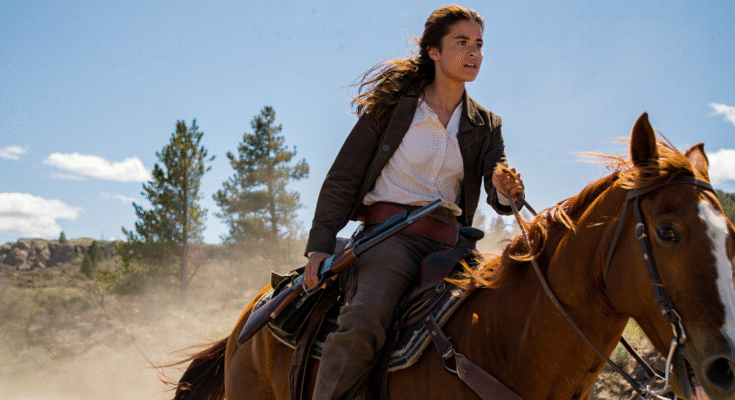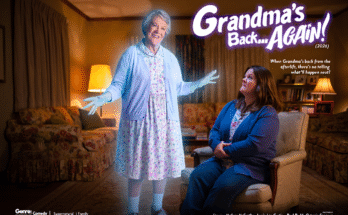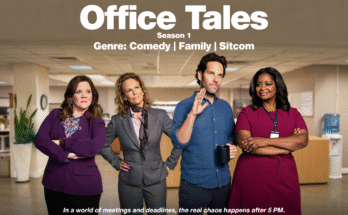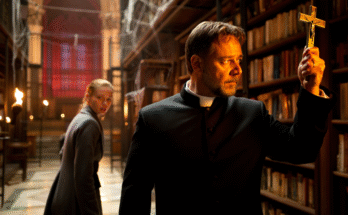More than fifty years after Big Jake thundered into theaters, its legacy rides again in Big Jake 2 (2025) — a film that dares to revisit one of the toughest corners of the Western genre. Where the original gave us John Wayne’s grizzled patriarch rescuing his kidnapped grandson, the sequel embraces generational weight, exploring what happens when legends fade but their echoes never quite die.
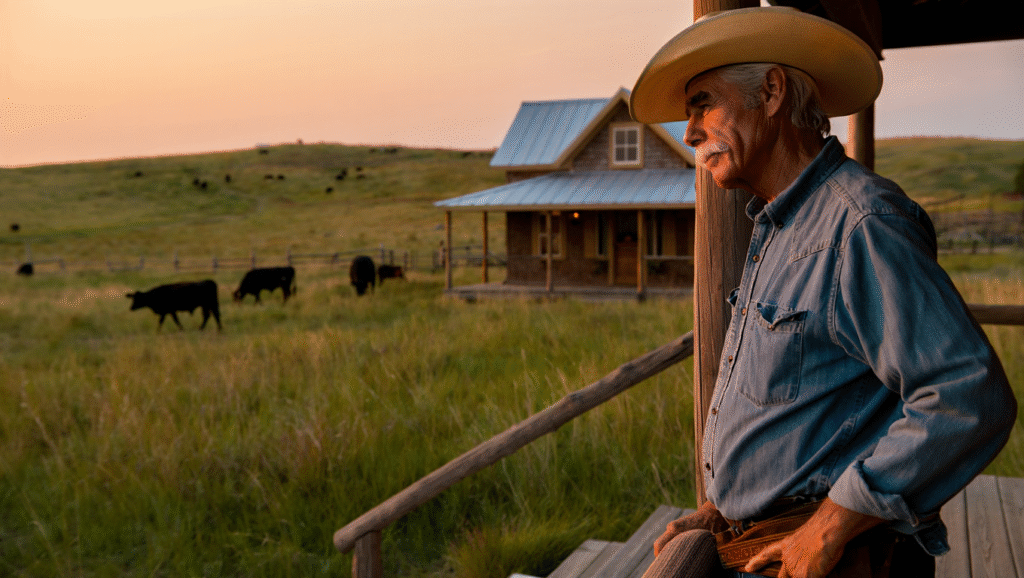
At the heart of this continuation is Ethan Hawke as James McCandles, grandson of the original Big Jake. Hawke plays him not as a swaggering gunslinger, but as a weary rancher trying to carve a life of stability in a world that refuses to let violence stay buried. His performance blends quiet restraint with flashes of rage, embodying the struggle of a man who inherits a family name heavy with both honor and blood.
Sam Elliott, stepping into the role of the estranged uncle, is the film’s anchor of gravitas. His weathered drawl and lived-in presence make him feel like the last remnant of an era slipping into myth. When James calls upon him for help, Elliott’s character doesn’t simply return as muscle — he represents memory, regret, and the cost of keeping the McCandles flame alive. His dynamic with Hawke is riveting, alternating between friction and hard-earned trust.
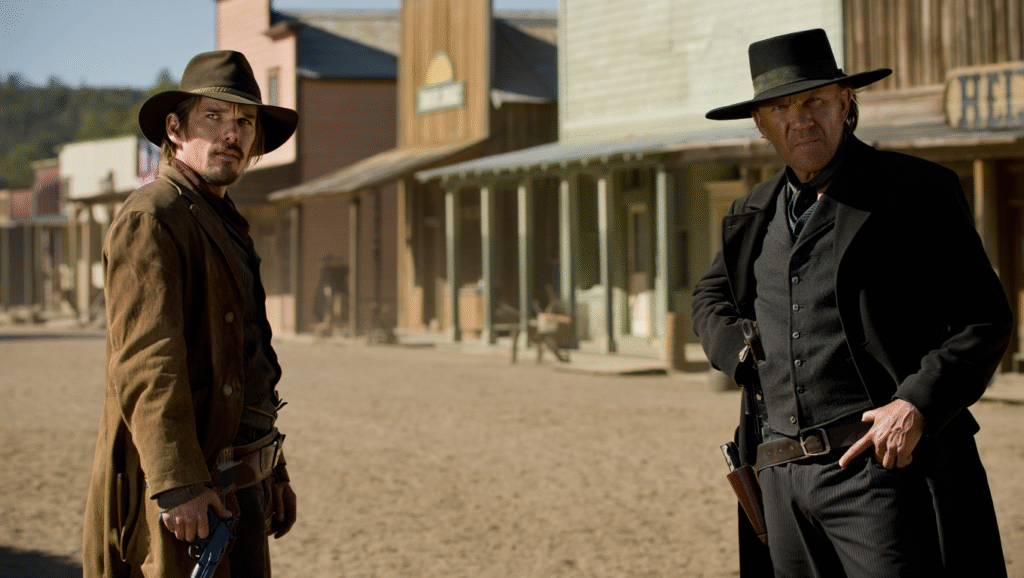
Walton Goggins once again proves himself a master of villainy. As the cunning gunslinger leading a new breed of outlaws, he mixes charm and menace into a character who thrives on unpredictability. Goggins doesn’t just twirl his metaphorical mustache; he sharpens his cruelty with intelligence, ensuring that every encounter with the McCandles feels like a chess match played at gunpoint.
Thomasin McKenzie shines as James’ daughter, carrying forward the McCandles bloodline with grit and surprising ferocity. In a genre often dominated by men, her role feels both fresh and earned, her quiet determination evolving into fierce resilience when the family’s survival hangs in the balance. Her character bridges past and future, showing that legends aren’t inherited by name alone — they’re earned by fire.
Tim McGraw adds a soulful texture in a supporting role, bringing country grit and quiet dignity that fits seamlessly into the dusty, dangerous world. His presence deepens the ensemble, emphasizing that the frontier wasn’t just built by gunfighters but by stubborn souls clinging to survival.
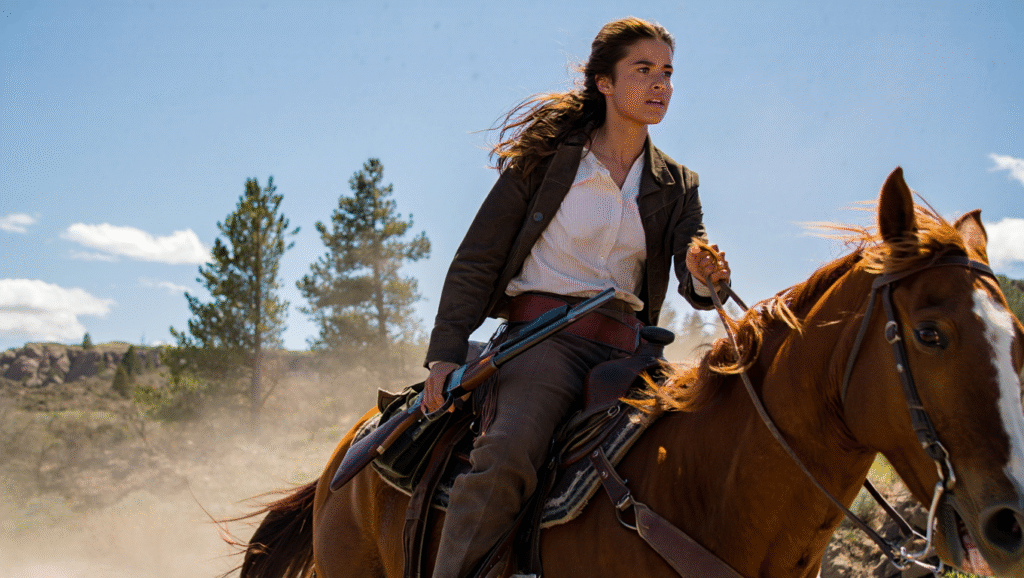
Visually, Big Jake 2 is a love letter to the Western canvas: sweeping plains, lonely outposts, and sunsets that burn like the end of the world. The cinematography echoes John Ford’s sweeping traditions while injecting modern grit — dust clings to the camera, gunfights echo with bone-rattling realism, and the land itself feels like both a blessing and a curse.
Thematically, the film wrestles with legacy. Can a family ever outrun the violence that built its name? Can the McCandles clan break the cycle of vengeance, or is bloodshed their inheritance? These questions hang over every shootout, every tense stare, every decision James makes. In this sense, the sequel honors the soul of the original while refusing to romanticize it — this is not a West of glory, but of sacrifice.
The final act builds to a showdown that feels as inevitable as a thunderstorm. Gunsmoke, betrayal, and desperate courage collide in a climax that pits the McCandles legacy against the ruthless pragmatism of Goggins’ outlaws. It’s brutal, it’s heartbreaking, and it leaves just enough ambiguity to suggest that legends may guide, but they also haunt.
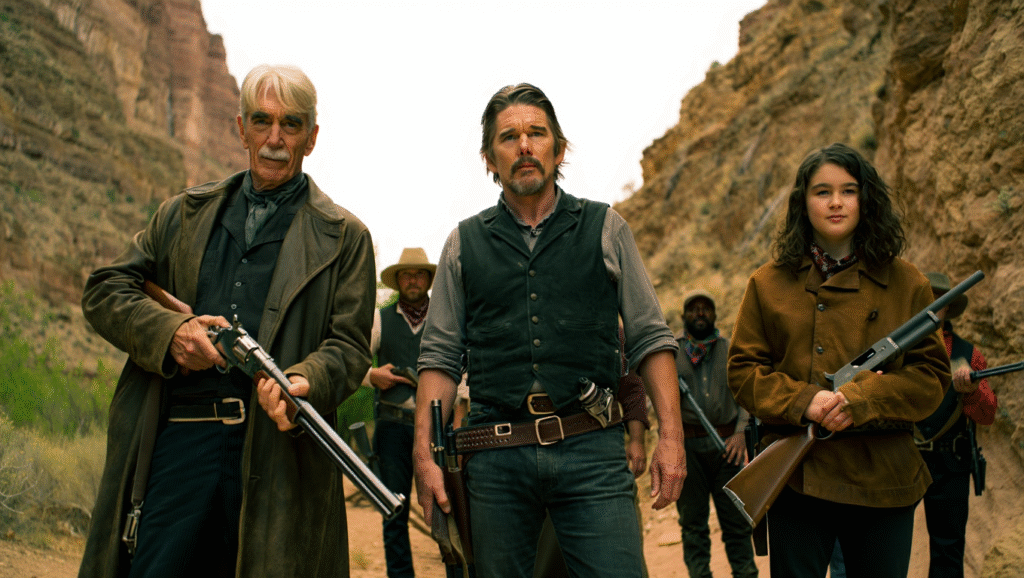
If there’s a flaw, it’s the film’s occasional indulgence in homage. Certain moments lean too heavily on recreating the beats of the original rather than trusting its own fresh blood. Yet the performances and the emotional stakes ensure that Big Jake 2 is not simply imitation — it’s continuation.
In the end, Big Jake 2 rides tall as both tribute and reinvention. It doesn’t try to replace John Wayne’s shadow; it acknowledges it, wrestles with it, and carves a new trail for a modern audience. For fans of the Western, it proves that the dust of the frontier still carries stories worth telling — stories where justice costs dearly, and family is both a burden and a bond.
